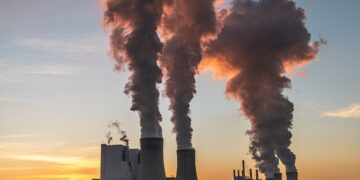The Impacts of Melting Glaciers on Our Planet
The Earth’s climate is undergoing significant changes, and one of the most visually striking indicators of these transformations is the melting of glaciers. This phenomenon not only serves as a clear sign of global warming but also brings with it a host of environmental, economic, and socio-political issues that need urgent attention. In this comprehensive guide, we delve into why glaciers are melting, their impact, and what it means for the future of our planet.
What Are Glaciers, and Why Are They Important?
Glaciers are massive, persistent bodies of dense ice that are constantly moving under their own weight. They form when snow remains in one location long enough to transform into ice. Over years, layers build up, creating pressurized glaciers that mold landscapes, support ecosystems, and supply fresh water.
Why Are Glaciers Melting?
The primary reason glaciers are melting is global warming. As atmospheric temperatures rise due to increased concentrations of greenhouse gases, glaciers respond by shedding ice at accelerated rates. This melt is not just a symptom of climate change but also a contributor to it, revealing a dangerous feedback loop.
Environmental Impacts of Glacier Melt
Rising Sea Levels
One of the most critical consequences of glacier melt is rising sea levels. When glaciers melt, they add fresh water to the ocean, which can lead to the submergence of coastal areas and islands, displacing communities, and disrupting ecosystems.
Loss of Freshwater Resources
Glaciers are essential sources of freshwater for many regions around the world. As glaciers dwindle, the rivers they feed can diminish or dry up, impacting agriculture, drinking supplies, and hydropower generation.
Habitat Disruption
The retreat of glaciers also poses severe threats to wildlife. Many species depend on glacier-fed rivers and cold water temperatures, making them vulnerable to habitat loss and ecosystem disruptions.
Socioeconomic Consequences
Impact on Tourism
Glacial retreat affects tourism, particularly in regions where ice treks and scenic landscapes draw visitors from around the globe. This not only impacts local economies but also reduces awareness about glaciers and their role in global ecology.
Challenges for Indigenous Communities
Many indigenous communities live in close harmony with their surrounding landscapes, including glacier environments. The loss of glaciers can severely impact their traditional ways of life, cultural heritage, and survival strategies.
Global Economic Implications
Beyond local impacts, the disappearance of glaciers can have broader economic implications. For instance, reduced water supplies can affect commodity prices and increase competition for resources, potentially leading to conflicts.
Addressing Common Questions
What Can Be Done to Stop Glacier Melting?
Addressing glacier melt requires global action to reduce greenhouse gas emissions. This includes transitioning to renewable energy sources, enhancing energy efficiency, and adopting sustainable land-use practices. Additionally, supporting international agreements on climate change, like the Paris Agreement, is crucial.
How Fast Are Glaciers Melting?
The rate at which glaciers are melting varies significantly around the world. However, studies show that if the current trends continue, many glaciers could disappear by the end of this century.
Can Technology Help Preserve Glaciers?
Emerging technologies and geoengineering projects like artificial snow production and reflective blankets over glaciers are being tested. While these might reduce melting temporarily, they do not address the root cause of the problem: global warming.
Conclusion: The Call to Action
The melting of glaciers is a stark reminder of the rapid changes occurring on our planet due to human activities. It underscores the urgent need for concerted efforts to mitigate climate change and adapt to its impacts. By understanding the role of glaciers in our global ecosystem and taking immediate action to preserve these precious resources, we can help safeguard the Earth for future generations.
In conclusion, while the challenges posed by glacier melt are significant, they also offer an opportunity for humanity to come together and address the underlying issues of global climate change. Whether through policy changes, technological innovation, or individual actions, each effort counts towards preserving the Earth’s natural balance and maintaining the health of our planet.











